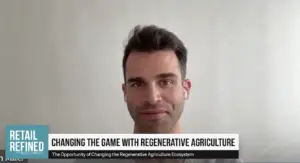Forecasting a Monumental Moment in Food Production
In 1931, Winston Churchill predicted that humanity would eventually “escape the absurdity of growing a whole chicken in order to eat the breast or wing, by growing these parts under a suitable medium.”
In 2019, clean meat companies are doing just that. According to Matt Ball, Senior Media Relations Expert for the Good Food Institute, a number of companies have even succeeded in developing growth media without any animal products, which was once a formidable challenge for the industry as a whole.
What are the challenges facing clean meat companies today?
Ball says that “most companies are focusing on scaling up production” and that “producing growth media at scale is the greatest challenge at this moment.”
Specific companies are also facing their own set of challenges, specifically Aleph Farms as it strives to produce lab-grown steak that has the same taste and texture the consumer is used to. The company claims to have achieved this goal at the end of 2018.
As companies seek to upscale production, they often do not have the benefit of learning from the progress made by other companies in the industry. The advances companies make in terms of growth factors or scaffolding, for example, are often proprietary to the companies themselves.
This is why the Good Food Institute is seeking to fund research that all clean meat companies would be able to draw from. The company is offering $3 million, mainly to researchers at colleges and universities around the world, “for plant-based and clean meat research that will be open-access,” according to Ball.
Ball says research topics will include everything from scaffolding development to engineering growth factors at scale.
While restaurants are currently focused more on plant-based meat due to clean meat’s current lack of commercial availability, Ball is certain that there is a significant appetite for clean meat amongst some of the leading players in the food production industry. Former CEO of Tyson Foods Tom Hayes has even notably said, “if we can grow the meat without the animal, why wouldn’t we?”
While Ball says that clean meat is likely years away from anything considered commercial availability, especially considering that some of the most successful plant-based meat companies like Impossible Foods still lack product availability in some areas of the United States despite being up and running for years now, he does anticipate that clean meat will be available to the consumer very soon.
“Depending on regulatory approval, I would expect a company to be selling very limited amounts of clean meat at a restaurant somewhere in the world in the year ahead,” he said.
Clean meat companies are working hard to reach a level in which they can produce product quickly enough to meet demand. Researchers worldwide are pushing towards new technologies to facilitate this process. The future of food, according to Ball, contains foods that look pretty similar to how they look today—just produced in different ways.
While clean meat may not have arrived in Churchill’s predicted “50 years hence,” it is certainly here now. And 50 years from this point, it is quite possible that Churchill’s predicted “parks and gardens” truly will “cover our pastures and ploughed fields.”
For the latest news, videos, and podcasts in the Food & Beverage Industry, be sure to subscribe to our industry publication.
Follow us on social media for the latest updates in B2B!
Twitter – @FoodMKSL
Facebook – facebook.com/marketscale
LinkedIn – linkedin.com/company/marketscale







